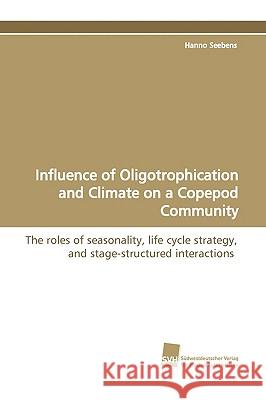Influence of Oligotrophication and Climate on a Copepod Community » książka
Influence of Oligotrophication and Climate on a Copepod Community
ISBN-13: 9783838104874 / Angielski / Miękka / 2009 / 108 str.
Copepods are among the most abundant multicellular organisms in the world. Despite their central role in all aquatic habitats ranging from the deep ocean to the glaciers, surprisingly little is known about their population dynamics under environmental changes. This thesis provides novel insights in the response of freshwater copepods to declining nutrient concentrations and climate variability with a primary focus on the role of seasonality, life cycle strategy, and stage-structured interactions. The first and second chapter analysed in detail the responses of two single copepod species with a simple and a complex life cycle, respectively. In the third chapter the mutual relationships of all species was investigated with an emphasis on the role of their evolved life cycle strategies. These results were compared to four other locations in chapter four. This thesis clearly shows that the whole annual life cycle and the seasonality of both juveniles and adults must be taken into account to gain a mechanistic understanding of species responses to environmental change. This knowledge is elementary to predict potential influences of future environmental changes such climate change.











